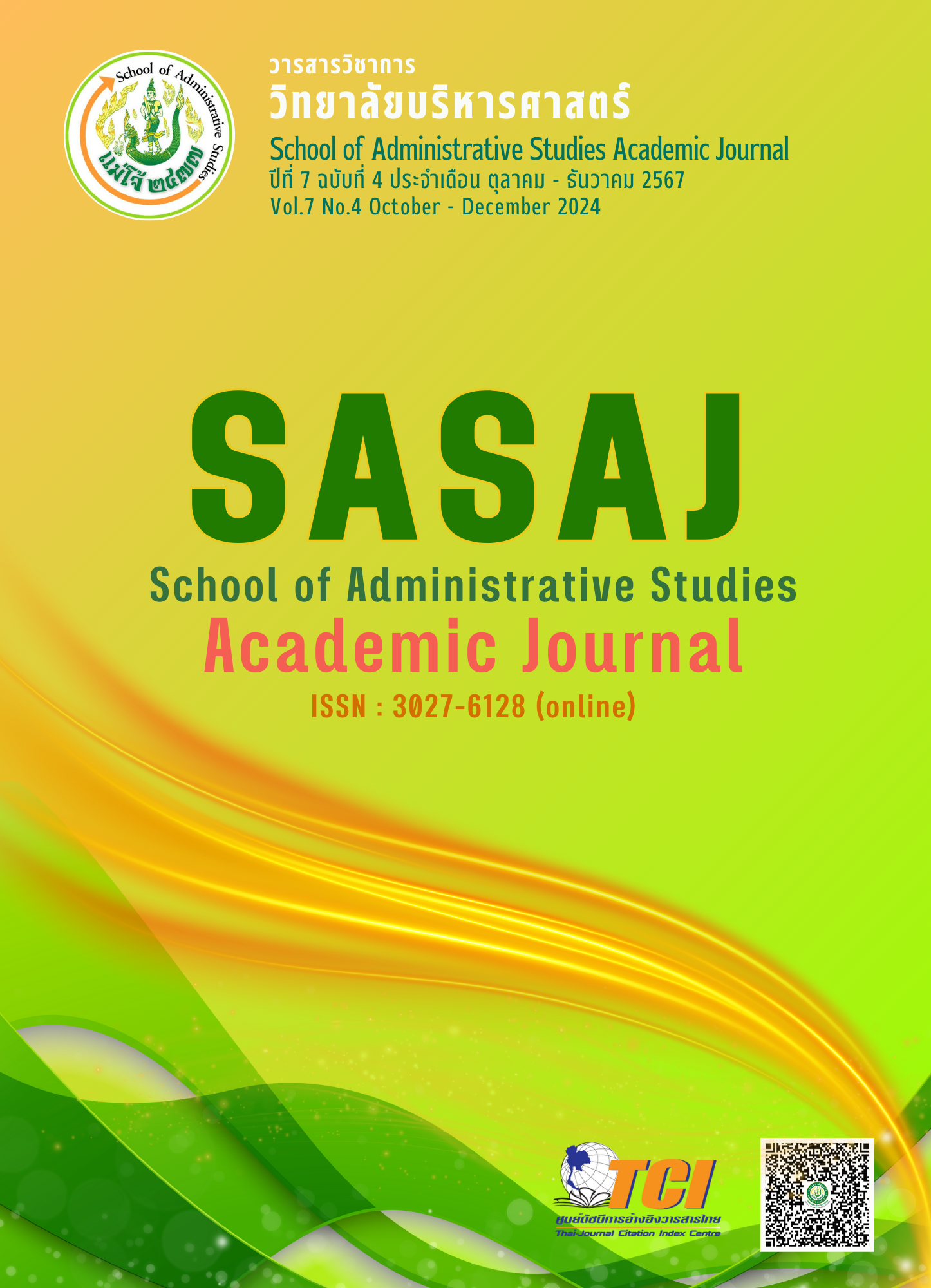Generations and General Election Voting Behavior in Northern Thailand
Main Article Content
Abstract
This research aimed to compare the voting behavior of different generational cohorts in Northern Thailand during general election. The study divided the generations into four groups: Baby Boomers, Generation X, Generation Y, and Generation Z. A quantitative research approach was utilized, focusing on voters from three provinces Lamphun, Phrae, and Uttaradit in the 2019 election. The sample consisted of 400 participants, selected through a multi-stage sampling method. Data were collected using questionnaires and analyzed using descriptive and inferential statistics.
The findings revealed statistically significant differences (p < 0.05) among the generations in their media consumption habits, both via television and online with political biases, as well as in their decision-making processes regarding political candidates and parties. Baby Boomers were more inclined to follow mainstream television media than other generations, whereas Generation Y showed a higher propensity for engaging with politically biased online media. In terms of electoral decisions, all generations predominantly selected individual candidates and parties collectively, with Baby Boomers showed preference for individual candidates over parties.
Article Details

This work is licensed under a Creative Commons Attribution-NonCommercial-NoDerivatives 4.0 International License.
ลิขสิทธิ์
References
กนกรัตน์ เลิศชูสกุล. (2564). สงครามเย็น (ใน) ระหว่างโบว์ขาว. กรุงเทพฯ: มติชน.
ฐากร ตัณฑสิทธิ์. (2561). ยุคดิจิทัลจะเปลี่ยนภูมิทัศน์ทางการเมือง(Landscape) ของประเทศ. Journal of Digital Communications, 2(2), 43–48. สืบค้นจาก https://so04.tci-thaijo.org/index.php/NBTC_Journal/article/view/168761/121422
นุกูล ชิ้นฟัก, วรลักษณ์ ลลิตศศิวิมล, และ จิราพร ปลอดนุ้ย. (2561). พฤติกรรมของผู้มีสิทธิเลือกตั้งที่มีต่อการเลือกตั้งตามระบอบประชาธิปไตยในตำบลเขาพระ อำเภอรัตภูมิ จังหวัดสงขลา (วิทยานิพนธ์ปริญญาดุษฎีบัณฑิต). มหาวิทยาลัยหาดใหญ่, คณะบริหารธุรกิจ.
วชิรวิชญ์ อัคราวิสิฐพล. (2564). การสื่อสารภังควิวัฒน์กับปรากฏการณ์แฟลชม็อบเยาวชนไทย. วารสารนิเทศศาสตรปริทัศน์, 25(1), 60-69.
วณัฐย์ พุฒนาค. (2560). การแบ่งคนเป็น Generations มาจากไหน? ทำไมต้องนิยามจากช่วงอายุ?. สืบค้นจาก https://thematter.co/pulse/where-does-generation-come-from/26074.
วัชระ คุณวงค์, และ อดิพล เอื้อจรัสพันธุ์. (2562). ภูมิทัศน์ความรุนแรงและการกลั่นแกล้งในสื่อออนไลน์. วารสารมนุษยศาสตร์และสังคมศาสตร์นายเรืออากาศ, 9, 146-160.
วัลลภัช สุขสวัสดิ์. (2560). การวิจัยเชิงปริมาณทางรัฐศาสตร์. พิษณุโลก: สำนักพิมพ์มหาวิทยาลัยนเรศวร.
วิจิตร เกิดน้อย, ยุทธนา ปราณีต, สุรพล สุยะพรหม, และ พรรษา พฤฒยางกูร. (2563). พฤติกรรมทางการเมืองในการเลือกตั้งทั่วไปของผู้มีสิทธิ์เลือกตั้งในตำบลไทยาวาส อำเภอนครชัยศรี จังหวัดนครปฐม. วารสาร มจร สังคมศาสตร์ปริทรรศน์, 9(2), 129-139.
วุฒิพล วุฒิวรพงศ์, และ กิ่งกาญจน์ จงสุขไกล. (2562). พัฒนาการของช่องทางในการแสดงออกทางการเมืองในสื่อออนไลน์ช่วง พ.ศ. 2560 – 2557. วารสารด้านการบริหารรัฐกิจและการเมือง, 8(3), 147-167.
ศักดิ์สิน อุดมวิทยไพศาล, ยุภาพร ยุภาส, และ สัญญา เคณาภูมิ. (2562). กรอบแนวคิดเชิงทฤษฎีพฤติกรรมทางการเมืองของประชาชน. วารสารมนุษยศาสตร์และสังคมศาสตร์ มหาวิทยาลัยราชภัฏอุบลราชธานี, 10(1), 293-306.
Carrillo-Durán, M.-V., Ruano-López, S., Fernández-Falero, M.-R., & Trabadela-Robles, J. (2022). Understanding How Baby Boomers Use the Internet and Social Media to Improve the Engagement with Brands. Comunicação e Sociedade, 41, 261-284.
Chan, M., Chen, H.-T., & Lee, F. L. F. (2017). Examining the roles of mobile and social media in political participation: A cross-national analysis of three Asian societies using a communication mediation approach. New Media & Society, 19(12), 2003-2021.
Prior, M. (2005). News vs. Entertainment: How Increasing Media Choice Widens Gaps in Political Knowledge and Turnout. American journal of political science, 49(3), 577-592.
Wongsuwan, N., Jermsittiparsert, K., Tokeaw, W., & Boonsiri, K. (2022). News Consumption Behaviors among Voters in Capital's Gubernatorial Election: Evidence in Bangkok, Thailand. Przestrzen Spoleczna, 22(1), 305-324.


